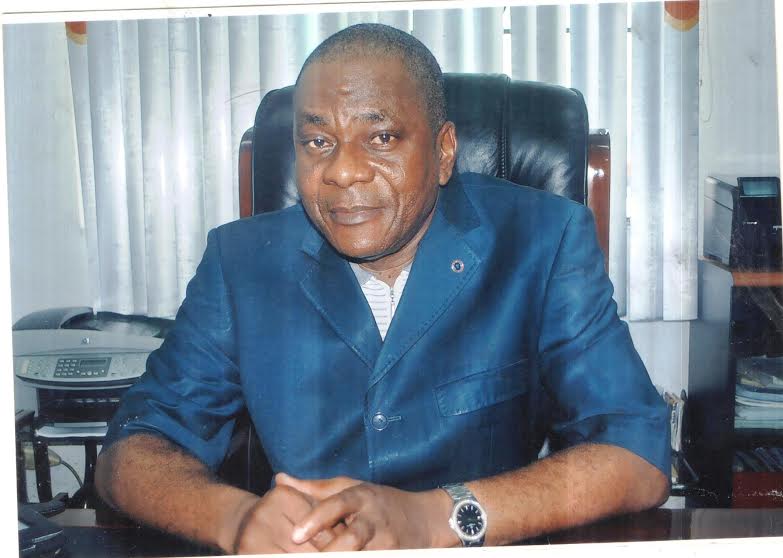The National President, National Council of Managing Directors of Licensed Customs Agents (NCMDLCA), Mr. Lucky Amiwero has said that the International Cargo Tracking Note (ICTN) as re-introduced by the Nigerian Shippers’ Council (NCS) is a duplicate of the process and purpose of the Pre- Arrival Assessment Report (PAAR) being operated by the Nigeria Customs Service (NCS).
Amiwero who made this known in a letter he addressed to President Muhammadu Buhari dated 16th November, 2015 with the title,” The Economic and Legal Implication on the Introduction of the International Cargo Tracking Note (ICTN) to the Economy”, and made available to Primetime Reporters recalled that the ICTN which was earlier introduced in the nation’s ports by the Nigerian Ports Authority (NPA) was cancelled by the President in 2011 due to the negative impacts it generated.
He further recalled that the cancellation was authorized through the Nigerian Ports Authority circular HQ/ED/M&O/OP/1231/5 of 9th November, 2011.
According to him,” The cost and process of the implementation of the International Cargo Tracking Note (ICTN) imposed on the Nigerian importers is contained in a circular issued to all the shipping companies and consignees, dated November, 2015, which duplicates the process of the Pre- Arrival Assessment Report (PAAR)/ Form M requirements.
“The recent re-introduction of the Cargo Tracking Note (CTN) to Nigeria imports requires an existing legislation by the agency involved to carry out the implementation with regards to charges and international process which is not contained in the statues that established the agency”.
The NCMDLCA boss informed that the Advanced Cargo Information (ACI) was a Pre-Arrival or advance information process that was a security tool covered under the World Customs Organization (WCO) Safe Framework of standards to secure and facilitate global trade adding that Advanced Cargo Information/ electronic information requirement was a customs control process which allowed the use of controlled data aimed to assist customs to make the best use of an improved timeframe to carry out risk assessment routines well ahead of the arrival of consignments.
“The Pre- Arrival Assessment Report represents the Advanced Cargo Information process that is used for security assessment. The Federal Ministry of Finance through the Nigeria Customs Service is authorized to implement the Advanced Cargo Information (ACI) process as contained in the two pillars of customs to customs and customs to business under the WCO Safe Framework of Standard to secure and facilitate global trade.
“The Customs and Excise Management Act section 36 -1 (a) gave the Minister of Finance power to regulate unloading, loading, movement and removal of goods on their importation and different regulations may be made with respect to importation by sea, air or land and inland waterways.
“While Section 71 – (1) covers information in relation to goods imported or exported to be furnished in such form as the officer may require any information relating to the goods and to produce and allow the officer to inspect any invoice, bill of lading or any other document relating to the goods.
“The power to implement advanced cargo information is exercised by the Federal Ministry of Finance through the Nigeria Customs Service which is reactivated in the PAAR”, he said.
Amiwero who is also the Managing Director of Eyis Resources in the said letter which was also copied to the Secretary to the Government of the Federation and the Minister of Finance maintained that the pre- shipment and other costs on Nigerian imports such as the 1% FOB, SONCAP fee and CTN covered under various levies and charges were not statutorily covered or in most cases not tied to service which according to him contravened the World Trade Organization (WTO) Articles VIII (Fees and Formalities connected with importation and exportation).
He re-emphasized that the multiplicity of cost on the nation’s import and export had a serious negative impact on the Nigerian manufactured goods and the attraction of the Foreign Direct Investments (FDI) which he said affected product competitiveness globally and high port cost within the sub-region that made Nigerian Ports unattractive.
While emphasizing the urgent need to effect the expected change by the government in the reduction in the nation’s port cost, he reiterated the need to set up a committee of experts to look into various charges in the nation’s import trade that were not tied to service.
He further called for the reduction in the documentation process that was duplicated by the PAAR, Form M and the process of the International Cargo Tracking Note (ICTN) which he said were of similar requirements.
Send your news, press releases/articles to info@primetimereporters.com. Also, follow us on Twitter @reportersinfo and on Facebook at facebook.com/primetimereporters or call the editor on 07030661526.

